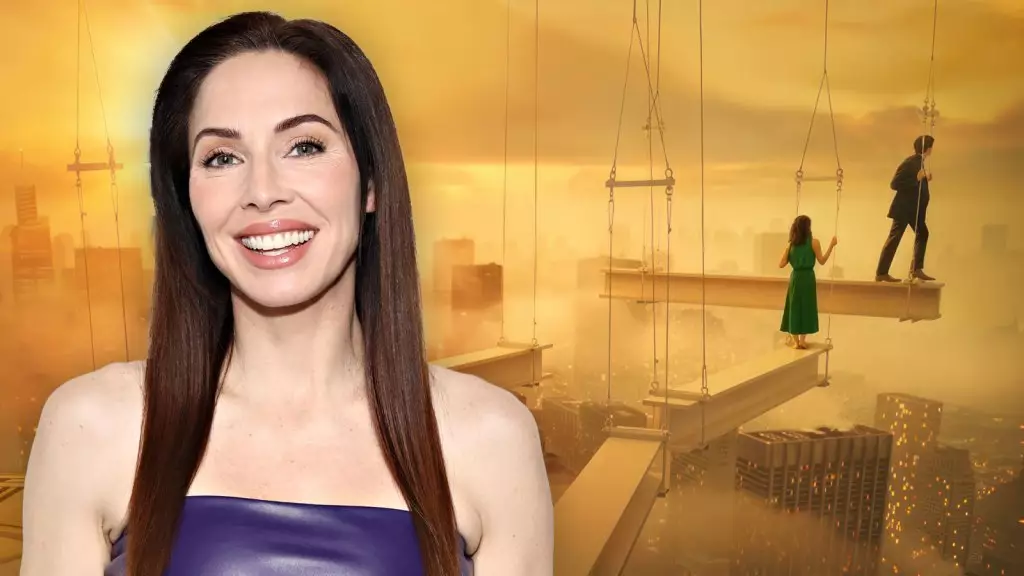Whitney Cummings is widely recognized for her sharp wit and comedic genius, but even seasoned performers face challenging experiences in their careers. Recently, during her appearance on the “Good For You” podcast, she recounted an audition for Francis Ford Coppola’s ambitious project, “Megalopolis,” that left her feeling humiliated and bewildered. This account offers a candid glimpse into the often precarious world of auditions, particularly when the stakes are high and the expectations are immense.
“Megalopolis” is not just another film; it represents a monumental undertaking by one of cinema’s most revered directors. With a budget of around $120 million, it features a star-studded cast that includes notable talents such as Adam Driver and Laurence Fishburne. In pursuing a role in such a high-caliber project, Cummings committed significant time and effort to prepare for her audition. She dedicated days to memorizing lines, intending to present her best self.
However, the atmosphere she encountered upon arriving for the audition was alarmingly void of the usual energy and anticipation. Cummings noted that rather than a lively setting filled with banter and nervous energy typical of auditions, she walked into a space defined by silence and tension. This disconnect immediately set a discouraging tone, foreshadowing the unusual challenges that lay ahead.
The audition took an unexpected turn when Coppola introduced a unique format that emphasized improvisation rather than structured scene work. Cummings, who is known for her improvisational skills, couldn’t shake the feeling that she was caught in an elaborate prank. Her confusion continued to escalate when Coppola prompted her to perform emotionally charged scenes using not one, but two distinct accents—English and Australian.
Imagine the surreal experience of bidding farewell to an imagined son off to war while attempting to navigate the complexities of an English accent. Or confronting a fictional husband with the added challenge of pulling off an Australian twang. Cummings’ recounting of these tasks evokes both sympathy and laughter; it’s a reflection of the absurdity that can unfold in high-pressure scenarios.
As the audition proceeded, Cummings revealed that she began to ‘glaze over,’ a state wherein she felt her connection to the performance dissipating. Disassociation during a high-stakes audition can be detrimental and can easily derail an actor’s ability to showcase their true potential. Cummings articulated the creeping self-doubt that overshadowed her improvisational efforts. “Why am I acting with him?” she queried. Here lies a poignant truth: even talented comedians and performers grapple with moments of insecurity, particularly when faced with such an iconic figure as Coppola.
Ultimately, Cummings exited the audition disheartened and embarrassed, a testament to how even accomplished entertainers can be vulnerable to the trials of rejection. The moment when Coppola handed her a signed copy of his new book, along with a bottle of wine bearing his name, only compounded the awkwardness of the experience. It was as though she had stumbled into a fan meet-and-greet rather than a pivotal career opportunity. The phrase “so humiliating” succinctly encapsulates the emotional fallout from this audition.
Cummings’ experience shines a light not just on the unpredictability of auditions, but on the broader dynamics within the entertainment industry. This anecdote serves as a reminder that regardless of one’s accomplishments or experience, the road to success is often fraught with uncertainty and challenges. For aspiring actors or entertainers, the story offers reassurance that embarrassment and discomfort are universal experiences—an integral part of the quest for creative fulfillment.
While Whitney Cummings’ audition for “Megalopolis” was marked by confusion and humiliation, it also underscores a vital truth about the entertainment industry: that resilience and authenticity often arise from our most challenging moments. Her account invites us to reconsider our perceptions of success and vulnerability, celebrating not just the triumphs but also the trials that shape an artist’s journey.



Leave a Reply